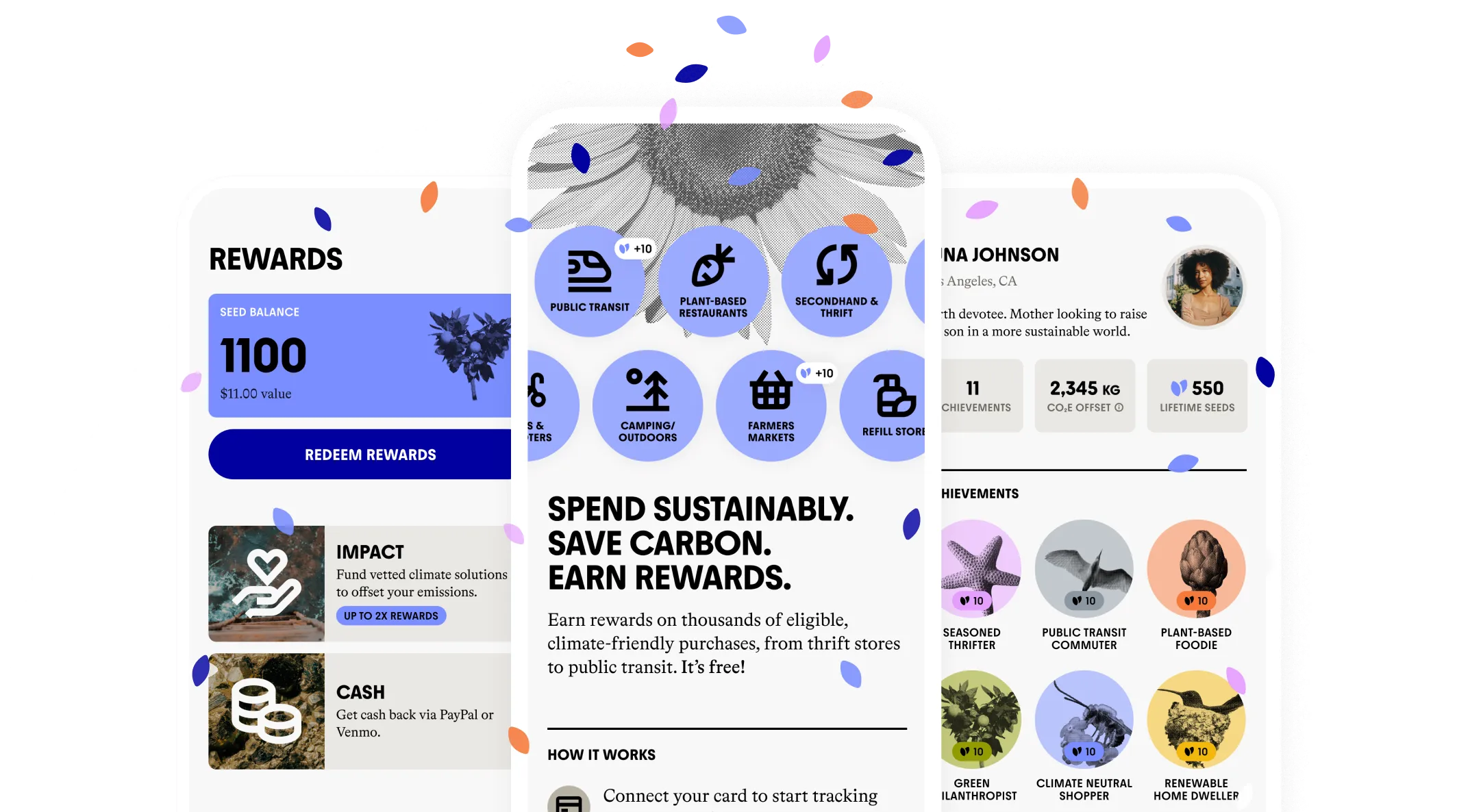Rewards for sustainable living

HOW IT WORKS
EARN SEEDS, GET REWARDS
Collect seeds as you build your sustainable life in Commons. Earn cash or fund climate solutions.


HOW IT WORKS
DISCOVER SUSTAINABLE BRANDS
Skip the greenwashing and discover 500+ vetted, climate friendly brands.


HOW IT WORKS
TRACK AND LOWER YOUR FOOTPRINT
Track your real-time carbon footprint based on your lifestyle and your spending.


HOW IT WORKS
FIND RESOURCES FOR SUSTAINABLE LIVING
Browse dozens of practical tips and personalized guides to lower your footprint.


HOW IT WORKS
BALANCE YOUR FOOTPRINT
Compensate for unavoidable emissions by supporting a portfolio of vetted climate solutions















“While companies like Microsoft and Shopify are engaged in purchasing carbon removal, Commons allows consumers to take action.”


“I think Commons is doing for climate action what Headspace did for mental health back in 2010. There has never been a more important time in history to solve this problem and there is no team I believe in more than Commons.”
RICH PIERSON, HEADSPACE FOUNDER & CEO


“I love Commons for reminding me that the choices I make can create a sustainable future.”


APP STORE REVIEW
“Commons is making climate-solution tools more accessible with an app that tracks and personalizes your carbon footprint.”













